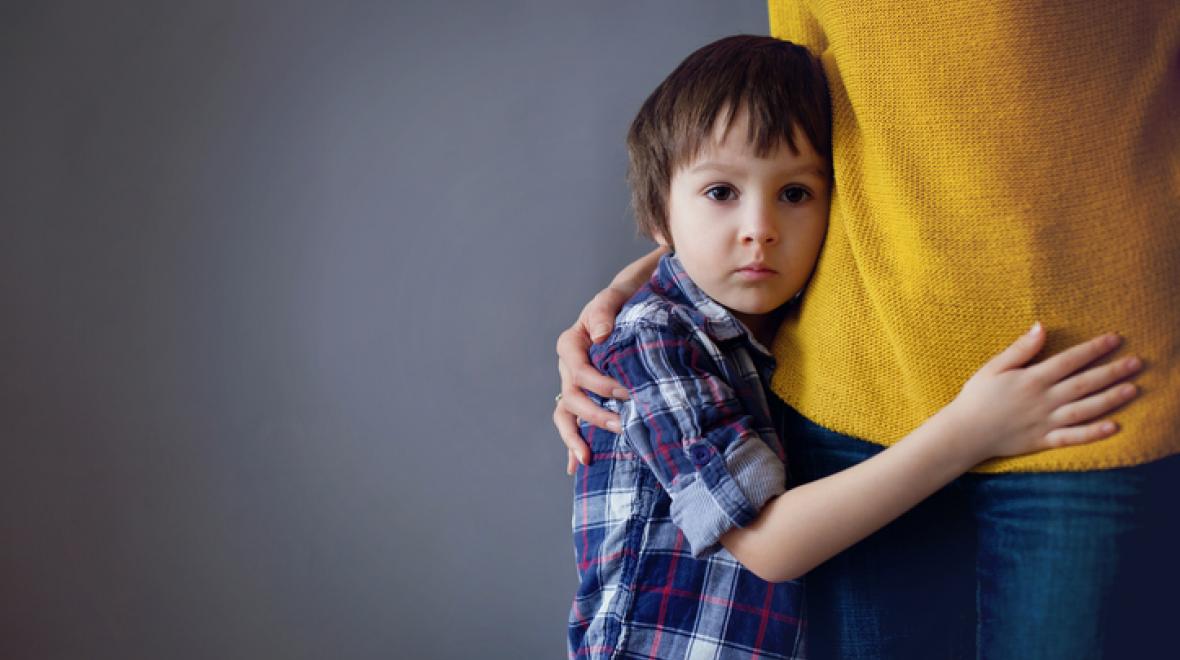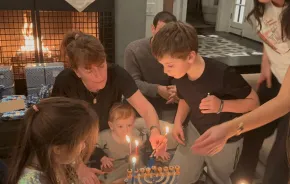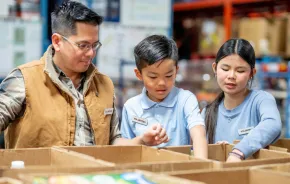
I have two little boys who were 1 and 4 when I was told I had a mass in my brain.
The conversations that followed were mainly with my 4-year-old. My youngest was pre-verbal and, anyway, mostly interested in cuddles, which I happily provided while processing the most shocking news imaginable for our tight-knit family.
The day after I learned about the mass, a dear friend gave us a book that defined our conversations with my oldest son: “How to Help Children Through a Parent’s Serious Illness” by Kathleen McCue.
The premise of the book is very simple: A family is based on trust, and that is still true if someone is dying. If a child is lied to throughout the health struggles of their dying parent and that parent dies, that trust is permanently broken.
And so my husband and I chose honesty and age-appropriate discussions about what we knew. How we said what we said was something that developed between us as a family.
It wasn't just one conversation, a bomb dropped to shatter their worlds.
It wasn't just one conversation, a bomb dropped to shatter their worlds. We had a constant dialogue, a narration of events and a bearing of all we knew.
I will never forget that the first time we sat down to tell Henry about my tumor. We struggled to find the right words, bracing ourselves with strength as we fumbled around for language that was appropriate. Then, he looked at us and said with full understanding: “Oh, so it’s like Mommy has a weed in her brain and the doctors need to take it out.”
That metaphor — his words — became the language we used to talk about the tumor.
When we learned more about the tumor’s nature — a glioblastoma, the most aggressive form of brain cancer, from which statistically no one escapes —we had a different conversation. This one was about how hard I was fighting and that the doctors were going to keep running tests and giving me medicine, but that there was a chance I could still die no matter how hard anyone tried to help.
Hope was part of the conversation, but only in truly realistic terms.
Throughout all of our clear, sharp conversations, my oldest son has honed in on the heart of every issue and articulated it with words I would never have thought to use. That applies to the good news, too.
After great test results when my heart was doing somersaults and my doctor gave me the hope that I would live decades, I spared all the details: I was doing well; the weed hadn’t grown back. He would smile and let me whisk him up for a dance party. My “growing old” isn’t of concern to him, mostly because he thinks I’m already old.
Now, a year since my diagnosis, the conversations aren’t stressful or planned like before. Now they’re just random statements, flashes of insight into the inner workings of his growing mind.
He asks if I’m all better, as if a cold had passed. So we remind him — like we do ourselves — that I am as healthy as can be expected but always going to have to be monitored in case the weed returns.
It’s a strange subject to cover, for sure, but how we talk about my cancer is as familiar as any other subject we face as a family. It’s a conversation I hope we have for a very long time.











